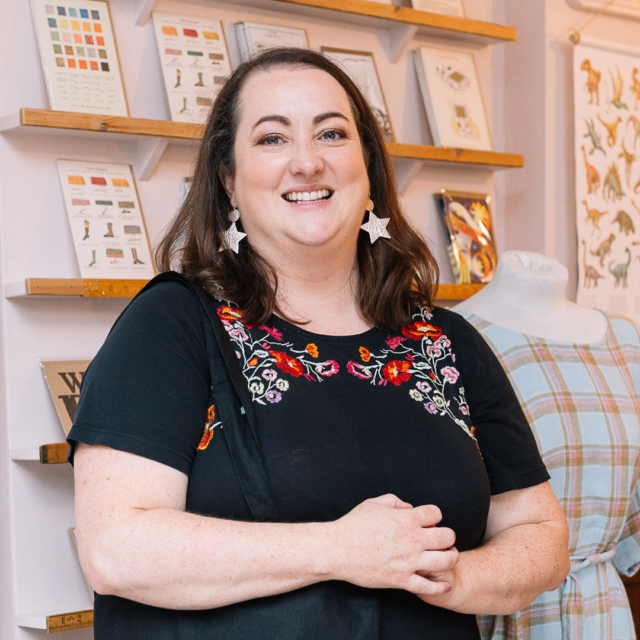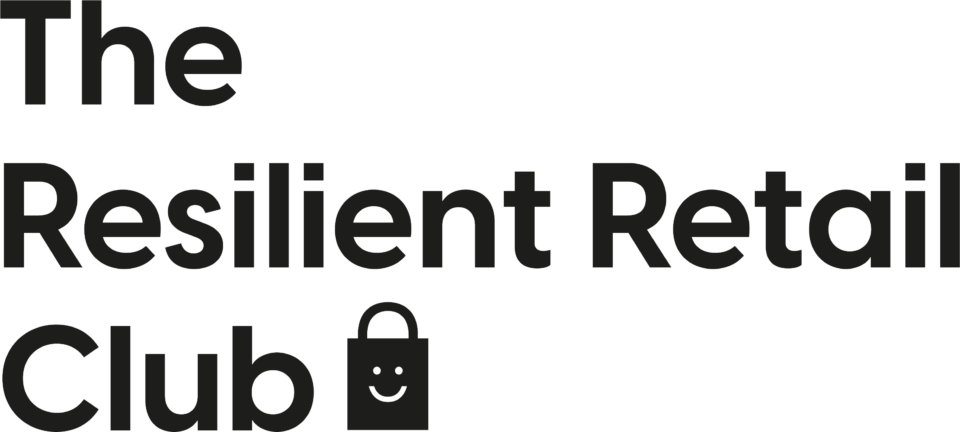Growing And Scaling Your Product Business
The Christmas sales period, and the likely increase you’ve experienced both in traffic and purchases, might have offered you a brief taster of what it might be like to operate your business at a higher capacity – perhaps you’re now wondering how to take things to the next level?
Whether you’ve been in business for a while, with dreams of multi-million-pound success, or are just getting started as an entrepreneurial hobbyist, it’s important to have an idea of how to manage greater demands on you and your business without getting overwhelmed and losing sight of what’s important.
So, it’s in episode 20 of the Resilient Retail Game Plan that we’re going to look at breaking down the components that contribute to the growth stage of your business, the many challenges you may encounter, and how best to adapt to the changing demands of your business and it’s customers.
We’ll start by taking a look at the motivations behind your decision to start a business and what you want its future to look like as well as reviewing the importance of how your business is structured and how to identify where pinch points and bottlenecks may be choking off your progress.
Delegating responsibility, understanding your numbers, and having a product strategy in place also all inform the shape of your growing business, so I’ll also be asking you how well you know you and your business – the more you understand and improve the processes, workflows and structuring at work within your business, the more streamlined and easily it can grow.
No time to listen? Read the episode in this blog post below!
Scaling your business – this is an area I discuss frequently with my one-to-one clients. Quite often people start their business and it’s grown but all of a sudden they’re feeling a little bit overwhelmed, or they want somebody to help work through how to take their business from where it is right now to the next level.
When you first start out with your business this might not be the first thing you think about – your focus is usually on how to sell more. Then as you do sell more you are dealing with different challenges you’ve not faced before, questions you’ve not asked yourself yet.
At this point you’ve got to start being creative and think about ways to overcome them. I particularly enjoy the process of working with founders to break down their business, look at what’s working, look at what’s not working -look at the bottlenecks and pinch points. Helping them identify ways that they can improve things, streamline things, and basically get ready for the next level.
Once you’ve got a really great product, brand, a great way of talking to your customers and great processes in place to get more people through the doors of your business – you’ll be surprised by how quickly things can take off.
This podcast episode and blog went live on the Thursday before Christmas week – a lot of you who are listening or reading may have already completed your Christmas selling for the year, maybe you’ve shut down your shop to avoid shipping delays for the final week before Christmas – chances are you have come through the kind of peak of the Christmas selling.
So it’s a great time to be thinking about scaling. The festive period is almost like a trial run – your business may operate at a certain level most of the year, then your sales jump up at Christmas time, it gives you a bit of a taster, an idea of what it could look like if your sales were this high all the time.
To be honest this blog post is asking you to ask yourself a lot of questions – because that is the process you need to work through to get this right.
Why?
If you are at the stage where you’re looking to grow your business – ask yourself why? Now it may sound like a bit of a stupid question, why wouldn’t you want to grow your business? However – there is nothing in this world that says you have to grow your business. If it’s at a level that you’re perfectly happy with and you don’t like managing people, for example, and you know that you don’t want to bring anyone else in to help you, then that’s absolutely fine.
If you do want to scale ask yourself what that means to you, in terms of five or ten years time – is it about a number of people that you’ve got working for you? Is it about a certain turnover goal – what do you want.
Purpose and structure
You’ve decided you do want to scale your business – the first thing to consider is your purpose for growth or why you want to grow. The second thing to think about is the structure and after such a busy time – the lead up to Christmas it will have highlighted to you where there are perhaps areas for improvement in terms of the structure – so it’s a great time to do this. For example?
Are you the person who’s actually delaying things? Because everything has to pass through you? Do you have equipment constraints? And maybe there’s somebody who’s working with you? Or you could, in theory, bring in other people to help but you don’t have equipment? Do you have the right people in to support you?
Think about when you are dealing with this higher volume of orders, how exactly did these pinch points and bottlenecks start manifesting themselves – it’s a really great way to have a springboard into thinking about what’s going to need to change in your business as you grow.
The structure can also be about the actual structure of your business. For example, once you hit the VAT limit, which is around £84,000 pounds, then that is going to have an impact on the prices that you’re charging to customers, potentially. And if you don’t change your prices, then it’s going to have an impact on your profits.
Did you get close to the VAT limit? Are you going to be pushing up against the limit in the near future? Are you currently a sole trader? Will you need to convert to being a limited company? Do you have people like good accountants who can help answer these questions for you, and help you understand what the legal implications are about the structure of your business as you grow as well?
What needs doing?
After structure, the next thing to be thinking about is people. We touched on this briefly, when we talk about the bottlenecks, because ultimately, one of the ways around bottlenecks is putting more people into the business. Think which tasks people can work on and if you have the right people helping you, there’s a really good book called ‘The E myth revisited’. It’s a little bit of a dated but has a great exercise in it, which I definitely recommend, if you are in the growth phase, and it’s one I used with clients and find it very helpful.
Map it out
Map out the perfect business structure in terms of the roles that you would ideally have, rather than the names of the people you have or would like to have. Maybe you need a customer service expert, somebody to do packing, somebody to be dealing with all of the logistics involved in getting the product in, someone who’s doing marketing, somebody who is dealing with your wholesale accounts and managing those.
Map out the various different roles that you need in the business, and then have a look at who’s doing those roles right now. It could well be that at the moment you’re doing all of it. It will help you start identifying that if you do want to bring somebody in to support you, you can see clearly the types of jobs that need to be handed off.
You can start thinking about do I have the skills in the business already? And then what other skills would I like to hire in. It enables you to be strategic and more structured about these plans and decisions.
What do you want?
Next is to think about what do you as the business owner want and by that I mean thinking about some of the practicalities, like, are you paying yourself enough? If you’re looking to grow your business, have you set parameters around how much you want to be paying yourself from your business? Are you going to build in a guarantee that you as the founder are going to be able to pay yourself more?
The other thing to think about as you grow is, do you have the support in terms of a coach or a mentor? Another thing to think about and to ask yourself seriously – as a founder are you prepared to delegate in order to grow?
And the reason I say that is because so often one of the things that gets in the way of business growth is that founders who are incredibly tenacious, which is really important, but there comes a time in order to get bigger, in order to grow, you have to be able to step back and somebody else has to be able to do some part of the business.
It’s often about learning, not just to delegate, but also to really teach people how to do what you were doing. It’s how do you motivate people to care as much about your business as you do? It’s how to put in procedures and processes, so that people can understand what you want from them. And it’s resisting the urge to hand something off to somebody and then immediately take it back if you don’t think they’re doing it, as well as you would do it.
Know your numbers. Know your business
How well do you feel that you know the business right now? Are you clear what’s driven your success so far? Do you have the ability to look at the analytics to understand which products, which channels, which advertising, marketing activities have been driving your sales?
Do you understand which of your stock is working and which of your stock needs to be cleared as you go? Are you clear that you’re making enough money on every sale? Do you know which of your products are the most profitable? Do you know what your average profit margin is? Do you know how much stock you’ve got in your business right now?
Do you feel like you’ve got a process and a proper series of steps for you to forecast and manage your stock? Have you looked at the impact of becoming VAT registered? Have you put in a process for reviewing your prices regularly? Do you look at clearing out old or underperforming stock on a regular basis as well to make sure that your cash flow keeps coming in.
Knowing all of this, knowing your numbers is the business management side of running the product business that’s critical you’re comfortable with in order to grow successfully.
Know your products. Know your business
What products have you got in your business that are doing well? How are you going to evolve and move your products on? How will you keep moving your product strategy forward? Do you have a plan for introducing new products? Do you have a plan for how you get inspired about new products? Do you know what kind of split you normally have between repeats of bestsellers? and newer, more experimental products? Have you thought about what this means for your product range?
Are you intending on bringing in new products to help you grow? Do you feel like your supply chain will support you with growth? Do you think there are any weak links? For example, are you concerned that perhaps some of your suppliers won’t be able to cope with an increase in capacity? Do you have a plan in place as well for thinking about how to get better prices on your products as you grow?
There’s a huge amount to think about – especially if you’ve had a really successful Christmas season and you’re looking into next year. I suppose really the key question that you have to ask yourself, which I hinted at the beginning of this section is about do your supply chain.
Will your supply chain be able to come with you on this growth journey? And if you’re not sure, or if you feel like there’s risk that they won’t – it’s always always worth looking into that and exploring alternatives, other suppliers. If you’ve been making products, then your key questions is do you need to bring in additional people to help you.
Take your customers with you
The last thing and possibly the most important thing for you to think about as you scale your business is how can you take your customers with you on this journey. How can you keep delighting them?
One of the most important things that you need to do is really take the customers along with you on the journey. Make sure that as you grow you are maintaining or exceeding your current standard of customer service, because nothing will damage your business more quickly than rapid growth without great customer service.
What can you put into place to make your customer service management more effective? Can you create a loyalty scheme? Can you create autoresponders, or other ways of pulling together all of the messages that you might be getting as a business so that you can make sure that none of them are getting missed? Can you include your customer in your growth journey?
Talk to them about what they want to see from you. Talk to them about any improvements that they would love to see as you grow? How do you currently send out your products from the business? Is it you doing it? Do you have any help? Is it something you can outsource? Is it something where you may need to start thinking about premises if you don’t already have them?
I know – there’s lots for you to think about – but throughout all of this, the question that you have to keep asking yourself is how are you going to make this the best possible experience for your customer.
Find out more
If you enjoyed this post, why not get my 101 things as you scale?
It’s an e-book designed to give you more detail about scaling your business.
Getting your hands on the 101 things as you scale is easy, and you’ll get so much more too!
It’s all part of my “Scale Your Business” FREE toolkit – a collection of resources designed to help you take your business to the next level. The toolkit contains:
E-book – 101 things to think about when you’re scaling your business
Margin calculator spreadsheet to check your profitability
E-book – Complete guide to Stock management
Workshop replay – The Launch Lowdown masterclass with Elizabeth Stiles
Ready to get the toolkit? Just put your email below to receive the link.
For more information about all three of my toolkits, click here.







